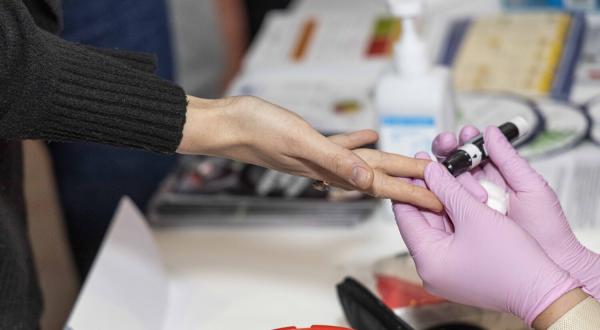Defence of doctoral thesis on dental anomalies and oral health in children with congenital nonsyndromic clefts
On 1 March at 17:00 in an open meeting of the Medical Promotion Council of RSU to be held in the Hippocrates Lecture Theatre (16 Dzirciema Street, Riga) Kristīne Kadiķe will defend her doctoral thesis “Dental anomalies and oral health in children with nonsyndromic clefts in the Latvian population and their association with genetic changes”.
Cleft lip and cleft palate are among the most common maxillofacial congenital anomalies. Their etiology is complex and is associated with genetic and external factors.
The prevalence of dental anomalies in children with congenital clefts is becoming more frequent and it is treated as an additional clinical marker for determining the risk of clefts. The timely and sequenced treatment of clefts in the maxillofacial area is of vital importance. Oral health is a major condition precedent for surgical and orthodontic treatment of patients with clefts. Healthy milk and permanent teeth allow for effective orthodontic and surgical treatment with maximum long-term effect.
The scope of the thesis was to study forms of dental anomalies and to determine the health of children with congenital non-syndromic clefts in Latvia and their connection with particular genetic markers (rs2240308, rs11867417, rs9929218, rs642961, rs11362, rs1800972).
The research consists of three independent parts. The first one deals with abnormalities of permanent teeth in children that have reached the age of 6 years. The second part is devoted to the assessment of dental health in children aged 2 – 12 years and the third part analyses the connection of genetic markers for dental anomalies (rs2240308, rs11867417, rs9929218, rs642961) and tooth decay (rs11362, rs1800972) in children with non-syndromic clefts.
The thesis provides a situational update and presents assessment data regarding dental anomalies, oral health and its connection with particular genetic markers in children with nonsyndromic clefts in Latvia.
The results of the study help to understand this complex multifactorial disorder and possible gene impact assessment on causes of nonsyndromic clefts. To improve the care of children with inborn nonsyndromic clefts, active interdisciplinary cooperation between cleft lip and palate specialists and other practitioners involved in the respective care is required.
Related news
 RSU Health Day attracts many first-time donors and large number of student research groupsFor RSU Employees, For Students
RSU Health Day attracts many first-time donors and large number of student research groupsFor RSU Employees, For Students


